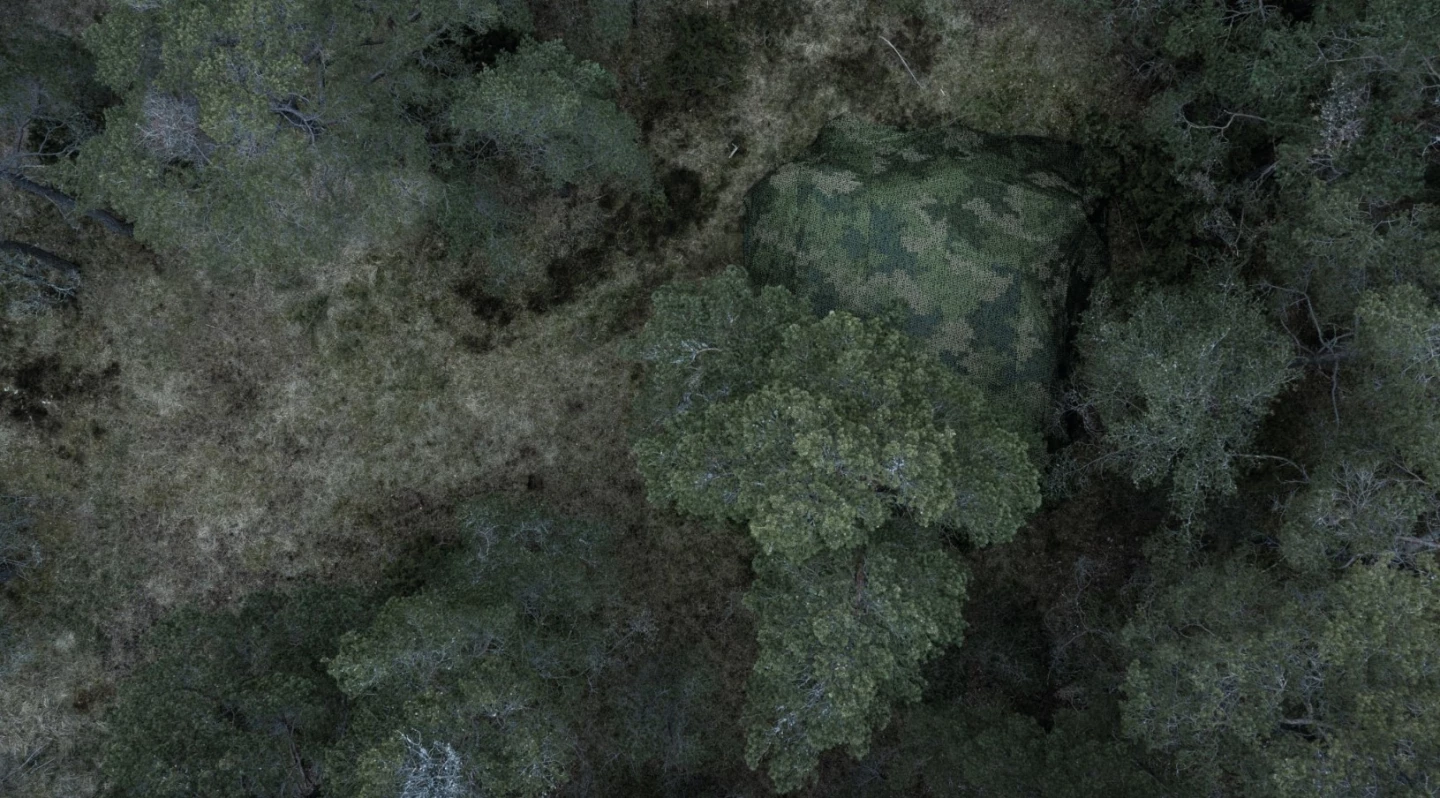Saab's new Ultra-Lightweight Camouflage Screen (ULCAS) is a net that allows soldiers to hide from radar sweeps, while still being able to receive GPS signals and radio communications.
For over a century, stealth has been one of the defining aspects of modern warfare. Being able to hide from the enemy or at least introduce a strong element of doubt in their minds gives a fighting force an obvious advantage, which can range from the invisibility of the submarine to simply breaking up the outline of a soldier against a background.
However, sometimes stealth can be counterproductive. One example is a recent trend that resulted in Saab's original version of the ULCAS camouflage net, which had a problem because it did too good a job.
As you'd expect, the ULCAS has a color pattern and a 3D surface structure that allows a squad of soldiers under it to blend into the foliage, along with blocking infrared to foil heat seeking sensors. But it also has a clever twist. The material and its lattice pattern are designed to absorb and attenuate radar signals from ground, air, and space-based systems, making it harder to detect or identify what's under the net.

So far so good, but the net also blocks out GPS and radio communication systems. This means that if the squad wants to find out where it is or receive orders from HQ, they have to stick an antenna outside the net. In radar terms, that's like flashing a mirror.
To overcome this, at the request of potential customers, Saab’s Barracuda business unit modified the ULCAS net to create the ULCAS Frequency Selective Surface (FSS) system. This uses a new lattice pattern that focuses on the higher end of the electromagnetic spectrum to attenuate radar signals in the 1 to 100 GHz range, but allows lower-end signals for GPS and radio to get through.
According to Saab, the technology can be altered to suit specific applications, including reversing the effect of the attenuation to allow radar signals through, but not radio, so the net could be used to hide radar and air defense systems.
The video below introduces the ULCAS FSS.
Source: Saab








